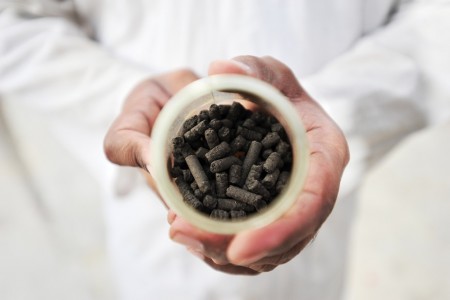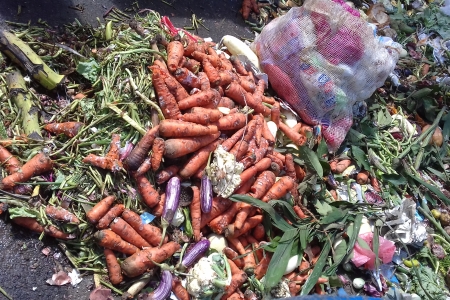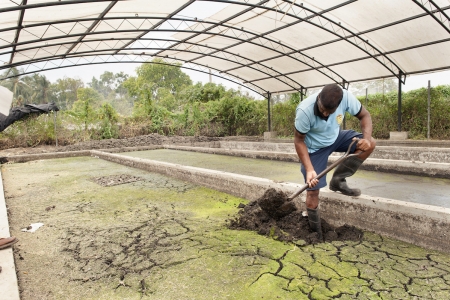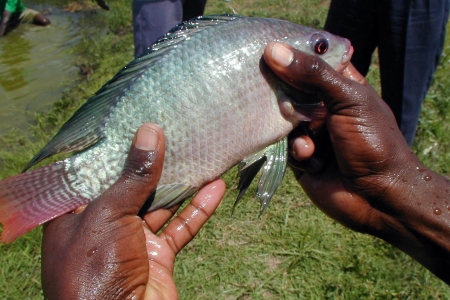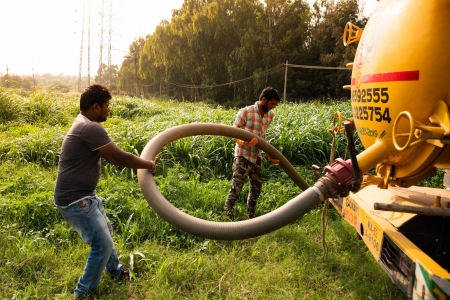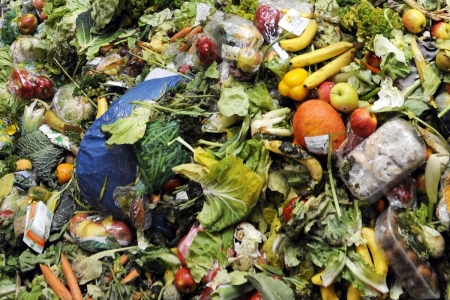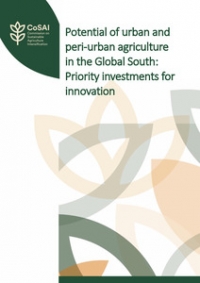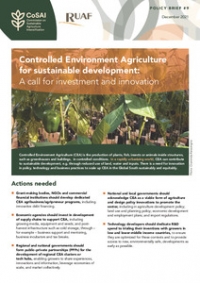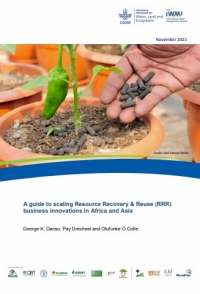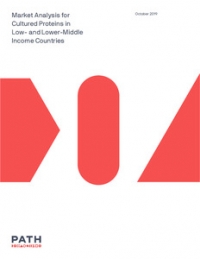Humans generate millions of tons of solid and liquid waste every day. The waste is rich in energy, water, nutrients and organic compounds vital for plant growth. But waste currently isn't managed in a way that supports reuse. Instead, waste accumulates in urban centers and leads to severe sanitation problems while millions of poor farmers continue to struggle with depleted soils and polluted water.
With its Resource Recovery and Reuse (RRR) program, the CGIAR Research Program on Water, Land and Ecosystems (WLE) is working to change that.
In 2013, RRR examined dozens of case studies on the reuse of human waste and waste water and started testing the feasibility of some of the most promising business models in 10 cities across the globe.
Turning waste to wealth
Furthest along is a public-private partnership model to turn fecal sludge into fertilizer pellets that started in Accra, Ghana. The product, which underwent field tests in northern and southern Ghana, is in the process of being trademarked as Fortifer. The trials showed that cabbage and maize yields were as high with Fortifer as with the use of an inorganic fertilizer.
The feasibility of implementing these models at scale is being studied in Accra and Kumasi in Ghana; Bangalore and Hyderabad, India; Colombo and Kurunegala, Sri Lanka; Dhaka, Bangladesh; Hanoi, Vietnam; Kampala, Uganda; and Lima, Peru.
"An enormous development opportunity exists to convert human waste into a resource that can benefit millions of poor farmers while providing cost recovery incentives for reducing the world's most pressing sanitation problem," said Pay Drechsel, leader of WLE's RRR program.
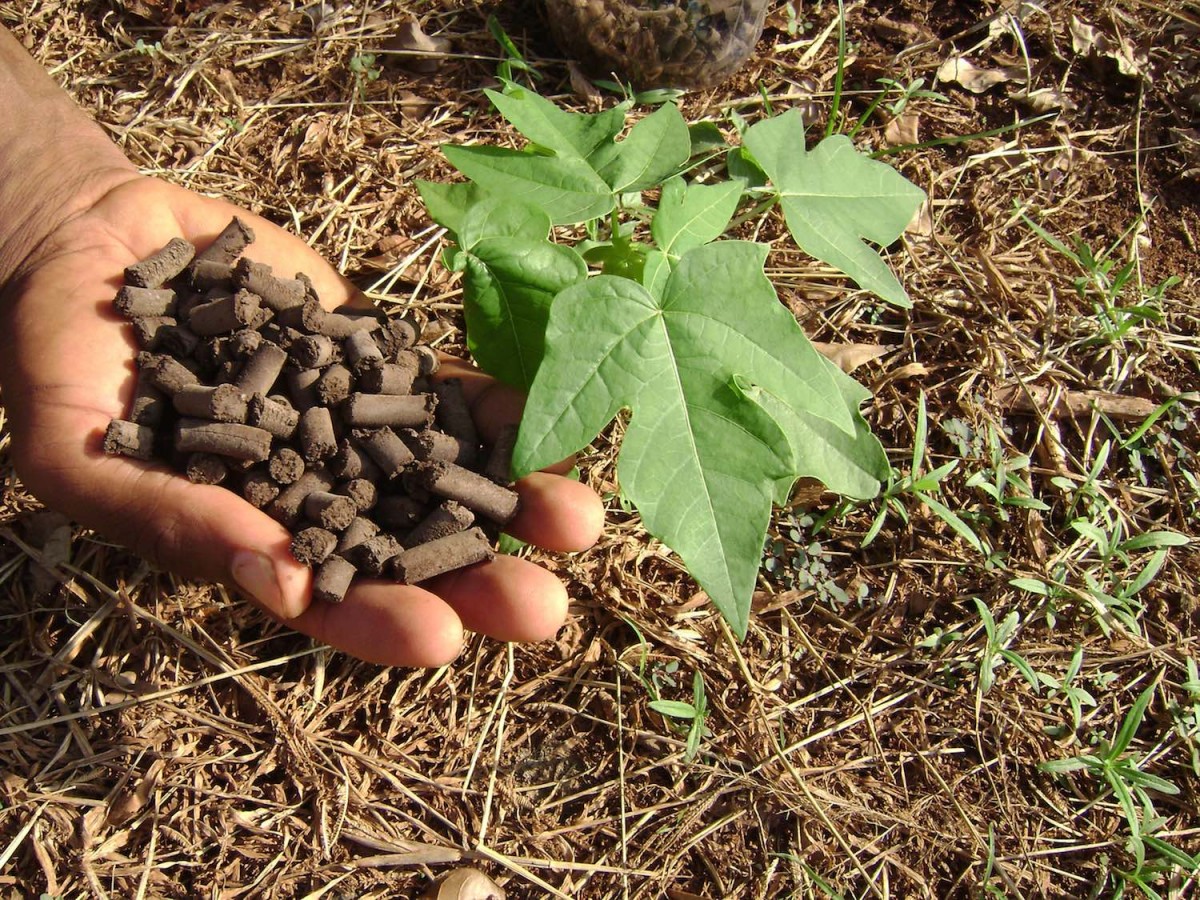
Exploring business models
RRR initially screened more than 150 success stories from across Asia, Africa and Latin America and assessed 60 of those cases comprehensively. Based on that analysis, about 20 promising business or cost recovery models for the safe reuse of nutrients, energy and water were developed.
The project's objective is to convert waste into a resource that can benefit farmers, create jobs and generate business opportunities to improve sanitation.That, in turn, will bolster the health of ecosystems where resource recovery and nutrient cycling are important services.
RRR has innovative partnerships with business schools, entrepreneurs, investment banks and programs, and the agencies influencing global safety standards-the World Health Organization (WHO), the Food and Agriculture Organization and the UN Environment Programme.
Mitigating potential health risks
"Reuse of human waste has potential health risks, so for each model health risks have been assessed and mitigation measures are incorporated to prevent exposure," said Kate Medlicott from WHO, the partner in the main RRR project funded by the Swiss Agency for Development and Cooperation. "Sanitation safety plans will be used for ongoing management and monitoring to address specific health risks."
In 2014, RRR plans to release benchmark publications related to the economics of waste water and on waste-based business opportunities in an urbanizing world. Planned outputs include catalogs of promising business cases, including an assessment of health and environmental risks mitigation for each model, and a set of guidelines for the safe use of fecal matter.
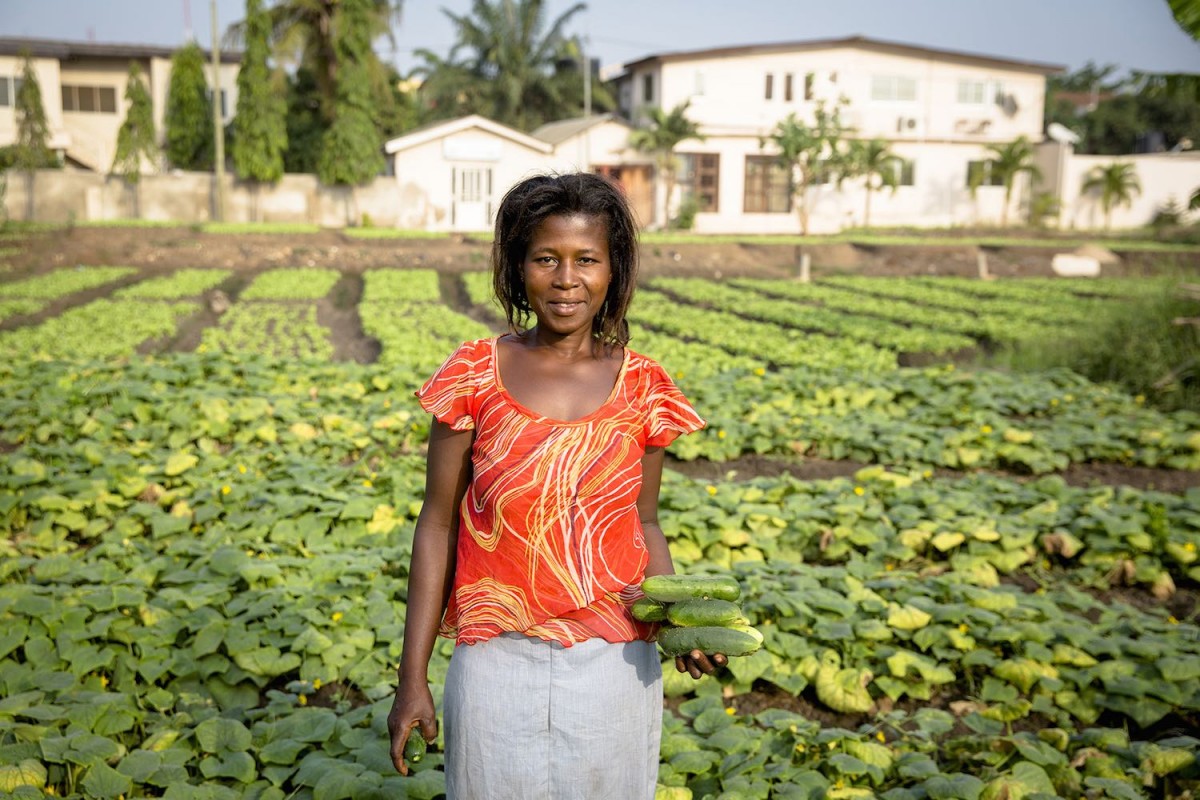
Policy discussions
Household management of waste can be a burden on women while resource recovery, especially of energy, can be a blessing. The large majority of the discussed models highlight potential benefits and opportunities for women and children. All feasibility studies include gender-disaggregated data, and the business models are analyzed for possible gender bias.
Researchers also will be involved in discussions on improved waste water and excreta reuse with policy makers at the national level in South Asia and West Africa. On the international level, RRR is providing multi-regional capacity building and database support and is working to promote global waste reuse guidelines.

